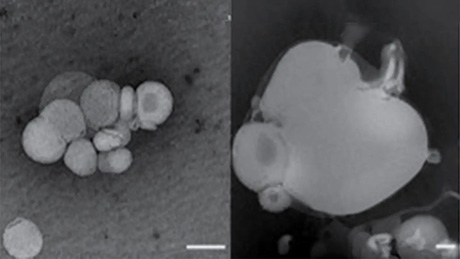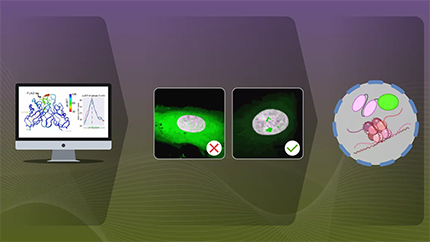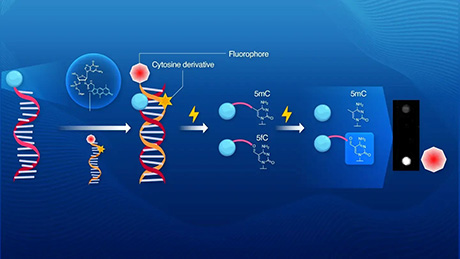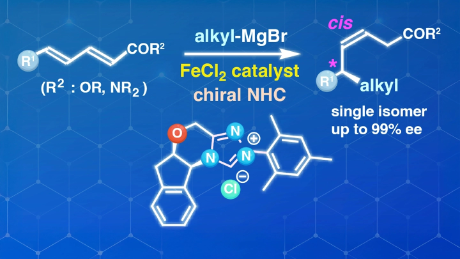Life Science and Technology News
Abscisic Acid Helps Red Algae Tolerate Salt Stress by Controlling Cell Cycle Initiation
A team led by Tokyo Tech researchers reveals a role for the plant hormone abscisic acid in regulating cell viability in a unicellular red alga, enabling it to grow under salt stress.
The plant hormone abscisic acid (ABA) plays a major role in response to environmental stresses such as high salt levels and drought. Although ABA has been detected in bacteria, algae, fungi, and even humans, most experiments on its function have been conducted in land plants. Work on its role in algae has produced conflicting findings, so a recent Japanese-based study led by Tokyo Tech set out to clarify this role in a model unicellular red alga, Cyanidioschyzon merolae, which grows in hot, acidic springs. The study was reported in Plant & Cell Physiology.
The researchers first compared the genome sequence of the red alga with that of land plants, and identified probable components of the ABA signaling pathway. This prediction was confirmed by their detection of ABA in algal cells exposed to high salt levels. Under these conditions, ABA was found to inhibit the cell cycle at the transition between the first gap phase (G1) and the DNA synthesis (S) phase.
One of the predicted red algal genes, CmTSPO, matches one from the model land plant Arabidopsis, which encodes the scavenger protein TSPO. This is responsible for removing excess heme and preventing its toxic build-up during plant metabolism. The researchers found that CmTSPO expression was switched on by ABA, just like in Arabidopsis. "Adding ABA increases the total heme content in the cells," lead author Yuki Kobayashi, who teaches Human Centered Science and Biomedical Engineering, says. "However, unbound heme levels decrease in response to ABA. This is probably because of scavenging by CmTSPO that binds heme."
The observed ABA inhibition of the G1/S transition was blocked by adding heme to the culture medium, suggesting that unbound heme is needed for completion of the cell cycle.
To understand why ABA stops the red algal cell cycle, the researchers studied the growth of a mutant incapable of synthesizing ABA. "Normal algal cell growth was reduced under medium salt stress, but that of the mutant alga was significantly reduced," corresponding author Kan Tanaka, who teaches Human Centered Science and Biomedical Engineering, explains. "ABA allows the alga to grow under salty conditions by stopping its cell cycle rather than resulting in cell death."

Figure. Red algal cell cycle control in salt tolerance
Under normal conditions, unbound heme activates the G1/S transition of the cell cycle. Under salt stress, abscisic acid synthesis induces the expression of a gene encoding a heme scavenger protein, which binds free intracellular heme. This blocks cell cycle progression, and enables red algae to tolerate salt stress conditions.
Reference
| Authors: | Yuki Kobayashi, Hiroyuki Ando, Mitsumasa Hanaoka and Kan Tanaka |
|---|---|
| Title of original paper: | Abscisic Acid Participates in the Control of Cell Cycle Initiation Through Heme Homeostasis in the Unicellular Red Alga Cyanidioschyzon merolae |
| Journal: | Plant & Cell Physiology |
| DOI : | 10.1093/pcp/pcw054 |
Further information
Professor Kan Tanaka (Human Centered Science and Biomedical Engineering)
Laboratory for Chemistry and Life Science
Institute of Innovative Research
Email kntanaka@res.titech.ac.jp
Tel +81-45-924-5274





